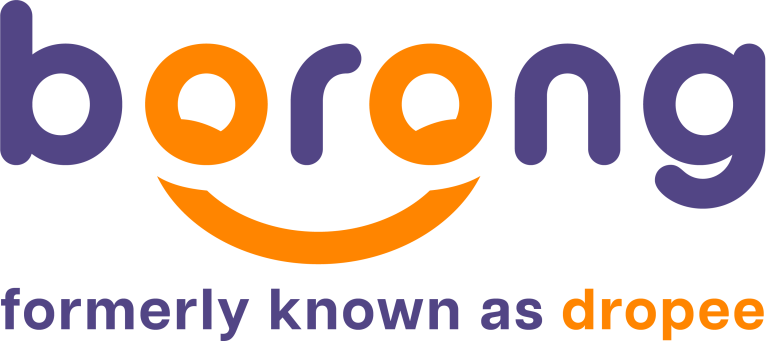Starting a business in Malaysia goes far beyond having a great idea. To thrive in this competitive environment, you need a solid understanding of the local business structure and a clear grasp of the various types of business that operate within the country. This knowledge will help you make well-informed decisions from day one.
As one of Southeast Asia’s most stable economies, Malaysia offers a favourable business climate, modern infrastructure and strong digital connectivity. These factors make it an ideal launchpad for anyone looking to develop a future-ready and scalable venture.
In this guide, we will explore the different business types, relevant regulations, and the opportunities and challenges you need to navigate to succeed in the Malaysian market.
What is a Business?

Before delving into the details of business structures, it is important to understand what business means. At its core, a business involves the production, distribution and sale of goods or services with the intention of generating profit. It can be carried out by individuals, partnerships or incorporated entities.
However, profit is not the only indicator of a successful venture. Long-term growth, customer satisfaction and the ability to remain competitive are all essential. Innovation also plays a critical role, particularly in adapting to ever-changing market demands.
Every business, regardless of its size or sector, depends on three core components:
- A product or service
- A target market
- A marketing strategy
The synergy between these elements determines the overall effectiveness and efficiency of operations.
Also read: Digitalisation For Small Businesses
Doing Business in Malaysia: What You Need to Know
Setting up a business in Malaysia requires familiarity with local market conditions and regulatory frameworks. Whether you’re a local entrepreneur or an international investor, understanding the landscape is crucial.
Factors That Contribute to Business Success in Malaysia
- Stable political and economic climate: Malaysia’s consistent governance and robust economy support investor confidence.
- Developed infrastructure: Efficient transport systems, digital connectivity and financial services make day-to-day operations smoother.
- Cultural diversity: The multicultural population creates space for businesses to cater to a wide range of consumer segments.
Business Regulations and Compliance
Every company must be registered with the Companies Commission of Malaysia or Suruhanjaya Syarikat Malaysia (SSM). Depending on your chosen type of business, the registration process and legal obligations may vary.
You should also be aware of:
- Tax regulations
- Licensing requirements
- Consumer protection laws
Fortunately, the Malaysian government provides incentives and grants, particularly for Small and Medium Enterprises (SMEs), helping new businesses to establish and grow sustainably.
The Role of Digitalisation
The adoption of digital tools is transforming how businesses operate in Malaysia. Many retailers and suppliers are already leveraging e-commerce platforms, mobile apps and digital marketing to reach broader markets and streamline operations.
Digital transformation is not just about convenience; it allows for innovative models of business that are more resilient and customer-centric.
Popular Types of Business in Malaysia

Understanding the classification and structure of each type of business will help you select the best model based on your goals, capital and operational preferences.
Based on Ownership Structure
Sole Proprietorship
A simple form of business owned by a single individual. It is easy to set up and ideal for small operations such as convenience stores or personal services.
Partnership
Formed by two or more individuals sharing capital, risks and responsibilities. This setup is suitable for businesses that benefit from collaboration, such as professional services or food outlets.
Private Limited Company (Sdn. Bhd.)
A separate legal entity from its owners, this type of business offers limited liability and is commonly used by entrepreneurs aiming for structured growth.
Public Limited Company (Berhad)
This structure allows companies to raise funds through public shares. It is more complex but ideal for large enterprises with broad funding needs.
Based on Operational Model
Product-Based Businesses
These involve the manufacturing or retail of physical goods. Inventory management and supply chain efficiency are crucial for success.
Service-Based Businesses
These offer intangible services such as consulting, education or maintenance. Customer experience plays a major role in retention and reputation.
Technology-Based Businesses
Start-ups and tech-driven firms are flourishing in Malaysia, particularly in the areas of e-commerce, software development and logistics technology.
Based on Industry Sector
Retail and Trade
A dynamic and accessible type of business that directly serves end consumers. Often involves daily essentials and fast-moving goods.
Food and Beverage (F&B)
With steady demand, the F&B sector offers strong growth potential. Creativity and consistency in both product and service are key success factors.
Finance and Investment
This includes banking, insurance and fintech. Businesses in this sector must prioritise compliance and build consumer trust.
Tourism and Hospitality
A significant contributor to Malaysia’s economy. Creating memorable guest experiences and exceptional customer service are vital.
Transport and Logistics
These businesses support the movement of goods and people across local and international routes. Efficiency, tracking technology and optimised delivery play a major role.
Understanding Business Scale in Malaysia
Different business scales come with their own sets of opportunities and hurdles. Identifying where your venture fits will help you plan more strategically.
Micro, Small and Medium Enterprises (SMEs)
SMEs form the backbone of Malaysia’s economy. They often begin with low capital and are managed by individuals or families. The government offers considerable support to SMEs via organisations like SME Corp Malaysia.
Large Corporations and Multinational Companies
These entities operate on a much larger scale, often involving exports, international investments and complex organisational structures. They contribute significantly to employment and innovation.
Local vs. International Businesses
Local ventures cater to domestic needs with culturally aligned offerings. On the other hand, international businesses require strategic localisation to adapt to different legal systems and consumer behaviour. With the right approach, both types of business can thrive in Malaysia.
Also read: Want to Be an Online Seller? Start Here
How to Start a Business in Malaysia
Launching a successful business begins with careful planning and regulatory compliance. Here are the main steps to follow:
1. Choose the Right Type of Business
Research the Malaysian market to identify trends, gaps and consumer preferences. Choose a type of business that suits your skills, budget and long-term vision.
2. Register with the Companies Commission of Malaysia (SSM)
Legal registration is essential for credibility and access to business services. SSM offers a convenient online platform for company registration. Ensure all documents are accurate and complete.
3. Secure Funding and Capital
You can fund your business through personal savings, angel investors, venture capital or bank loans. The government also provides financing schemes for SMEs and start-ups. A solid financial plan helps improve sustainability.
4. Build Your Brand and Marketing Strategy
Develop a consistent brand identity and make use of digital marketing channels. Understand your target audience’s behaviour and leverage social media, search engines and e-commerce platforms for visibility.
5. Comply with Tax and Legal Regulations
Understanding Malaysia’s tax system, employment law and industry-specific legislation is essential. Failing to comply can result in penalties or long-term business risks. Professional advice from accountants or legal consultants is recommended.
Challenges and Opportunities in the Malaysian Market
The business journey comes with its share of roadblocks and prospects. Being prepared to face both will set your venture up for resilience and growth.
Market Competition and Emerging Trends
In highly competitive sectors, innovation is key. Keeping up with market trends ensures that your business remains relevant. For retailers and suppliers, this could mean upgrading technology, improving product ranges or expanding into new sales channels.
Common Challenges for New Entrepreneurs
Limited capital, lack of experience and complex bureaucracy are common issues. Joining local business networks, attending workshops and seeking mentorship can help you overcome these barriers.
Export Opportunities and Business Expansion
Malaysia’s participation in international trade agreements creates vast export potential. If your type of business is capable of meeting global standards, expansion across borders could be a viable next step. Government support for international trade includes trade fairs, marketing grants and logistics assistance.
Also read: GMV Meaning: Definition, Calculation, and Business Insights
Power Your Business Growth with Borong
Understanding the right type of business to start in Malaysia is only the beginning. Long-term success comes from choosing the right structure, embracing digital tools, and tapping into networks that offer real value. Whether you’re a small retailer, a growing supplier, or a large-scale distributor, staying competitive means adapting to the ever-evolving market landscape.
If you’re ready to take your business to the next level, join Borong Market today – the trusted digital platform for retailers and suppliers in Malaysia.
- For retailers (buyers): Gain access to a wide range of quality products at competitive prices, manage orders seamlessly, and enjoy fast restocking with real-time updates.
- For suppliers (sellers): Expand your reach to 150,000+ of verified retailers, automate your order processing, and improve distribution efficiency through one centralised marketplace.
- For both: Enjoy full control of your supply chain, increase sales opportunities, and access actionable insights to grow smarter in the digital age.
👉 Register now as a buyer or supplier on Borong Market and build a stronger, more connected business – all in one platform.


